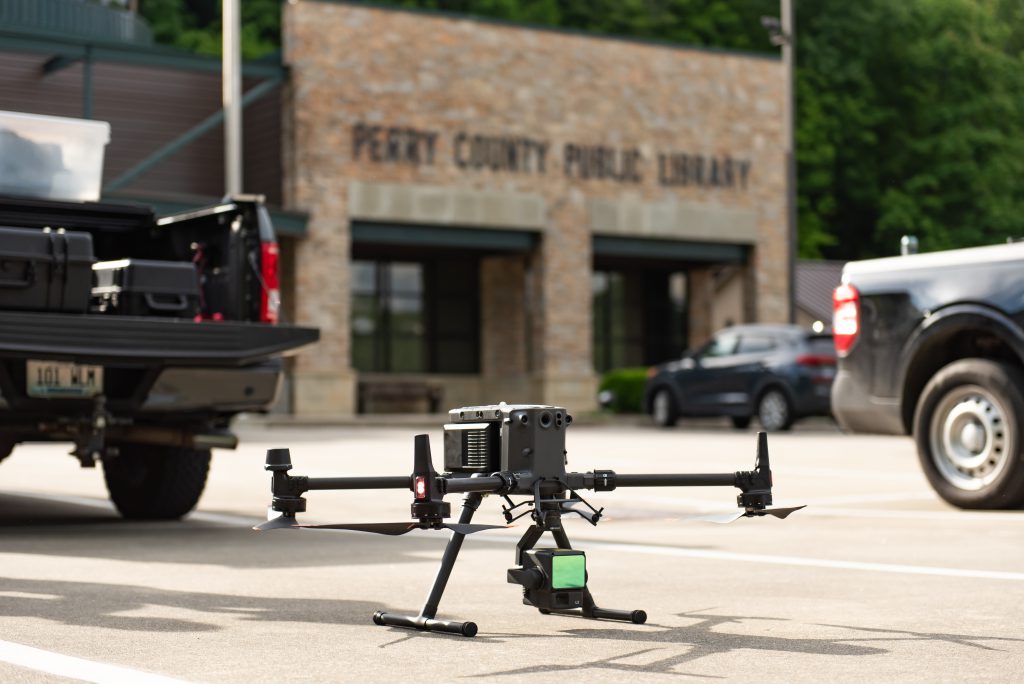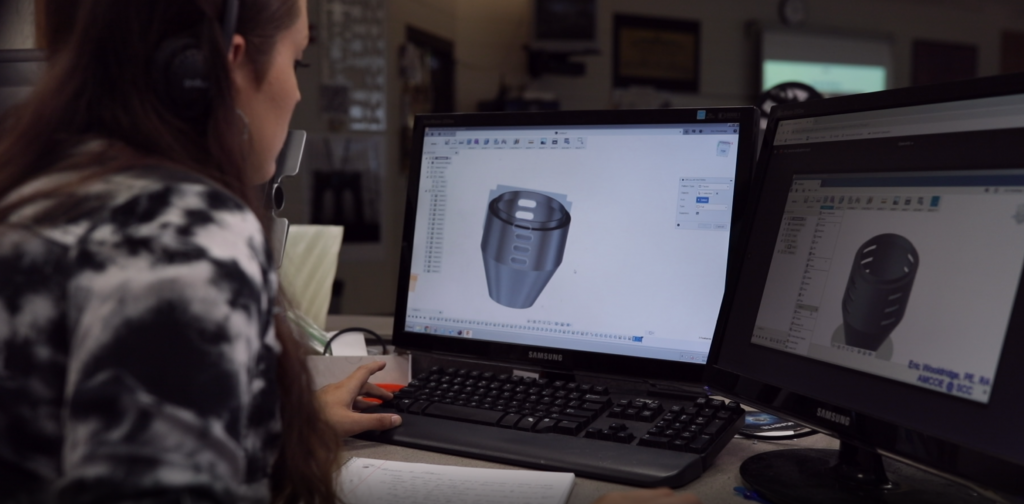By Avi Judd
“One of the issues that we’ve had in the geosciences is that a lot of students don’t realize we exist when they are thinking about majors or careers,” said senior lecturer in Earth and Environmental Sciences and Enviropods co-director Summer Brown.
How can earth scientists combat this problem? By introducing K-12 students to their field of science through engaging, interactive activities and programming.
Enviropods aims to do just this.
Enviropods is part of the broader impacts portion of the CLIMBS project, which conducts education and outreach programs to increase participation in geology, climatology and STEM career fields.
“The Enviropods program is a learning program for late middle school and early high school students that exposes them to the technology and the science that we actually use to study climate driven natural hazards,” explained Brown.

The program contains two core components. First, three-day summer camps (dubbed “pods”) for rising 7th, 8th, and 9th grade Kentucky residents which provide hands-on experience with geoscientists’ research and data collection methods. Second, self-contained, interactive kits with learning activities related to geological processes and climate hazards in Kentucky.
The pods will be run by faculty and students from the University of Kentucky (UK) like JT Gribbins, a STEM education major passionate about earth and environmental science.
“My goal is to get them excited for being able to be outside, excited for learning about how the earth interacts around them and how they’re impacting the earth as well.” Gribbins said.
One way Gribbins will accomplish this is by demonstrating to the campers how scientists and engineers approach Kentucky’s climate hazards through hands-on activities with modern technologies including drones, virtual reality headsets, and GIS.

The Enviropods kits will also be incorporated into the day-camps, enriching students’ learning with items such as water testing sets and scavenger hunts.
Both the camps and the kits will be located at public libraries.
“The main reason we chose libraries is because they are great educational outreach centers for the public,” said Gribbins. “While this [Enviropods] is geared toward K-12 ages, anybody can go into a public library.
Czarena Crofcheck, a co-PI for the CLIMBS Project and biosystems engineering professor at UK, added to the importance of choosing libraries saying, “The idea is […] that somebody can check out an Enviropods kit from the library and be able to take it home and work with it themselves, hopefully inspiring that citizen science and really hoping to reach out to additional people who care about climate resilience in Kentucky.”
This summer, Enviropods is running three camps, spread throughout Kentucky at public libraries in Hopkinsville, Hazard, and Frankfort. The team plans on expanding to 14 summer camps in the coming years with kits available year-round at all of the host libraries.

Each pod will focus on the climate hazards faced by its own community. For instance, Western Kentucky with tornadoes and earthquakes and Eastern Kentucky with flooding and slope stability.
Enviropods recognizes that discussing these climate events may bring up strong emotions in kids.
“Hazards like this can be really scary and anxiety inducing. I think if you help them realize there’s a solution, and we’re working on understanding these things better, then maybe we’ll help lessen some of that anxiety overall,” said Brown.
Through the camps and the kits, Enviropods hopes to spark curiosity about our natural world and inspire Kentucky’s next generation of earth scientists.
Each camp can host up to 20 students. Funding from KY NSF EPSCoR allows the pods to be free for all participants and provide lunch and snacks each day.
The camps take place from June 24-26 in Hopkinsville, July 15-17 in Frankfort and July 29-31 in Hazard.
For more information and registration details visit Enviropods | University of Kentucky College of Arts & Sciences.




